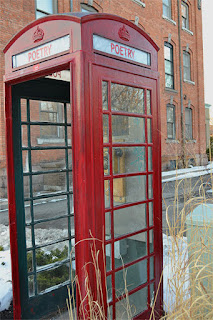Laughs with Friends
 |
| From Light, 2015 |
On Saturday, I was fortunate enough to attend a little gathering with two poet friends, Julieta Corpus and Rodney Gomez, to write and chat about humorous verse. These are two poets whose work I admire greatly, and it was a wonderful opportunity to just chat, write, and maybe most importantly, laugh together.
Our discussions got me thinking a little bit on the idea of humorous verse, so I'll share some thoughts here just for the sake of recording them. First of all, Julieta, who organized the little get together, said that, in her little research for our workshop, she'd found that there was really a dearth of humorous poetry written for adults. A lot of the silly poetry was written for a younger audience. Secondly, humorous poetry tended to be more formal in that it adhered to conventions of rhyme and meter more strictly than more serious poetry, in general of course.
Julieta was left wondering -- why don't more poets write silly poetry, get in touch with their silly side? It's a good question. I think there's a bit of a stigma to "light" verse as being frivolous, and I think we as poets tend to stick to heavier issues. But who doesn't like to laugh? I think, especially when it comes to public readings, lighter poems tend to go over well with audiences, particularly audiences with nonpoets.
So, I think it's worthwhile for poets to get in touch with their silly side. That's the sentiment I was left with after our fun little workshop. Julieta guided us to write a few poems or to generate some seeds for poems (for me, it's more about just getting ideas... I'm really bad at writing on the spot). I left inspired to write more, and to be open to the silliness.
For the past few days, I've been mulling over our conversation, which is of course a good sign. It was thought provoking. I thought about some of the different "light" poems I'd read in the past and what it was about light poetry that made it stand out and be successful. And how can I incorporate these elements in my own work to make it more accessible. I think "light" poetry, too, can add texture to an otherwise heavy manuscript of poems... that's where my mind is lately as I'm wrapping up Chronicles.
I think the best "light" poetry, or really, the best poetry period, plays with the mixture of light and darkness, of shadow and light. So, when writing light poetry, maybe the key is to make it easy and breezy on the surface, but still have some heft, some purpose to your work. I think a good example of a poet who's able to achieve this is Julie Kane. I like how her work deals with gender issues, but does so with a sheen of light that makes these difficult and sometimes taboo topics of female sexuality easier to talk about.
There's a really great discussion of her work here at Light, a journal of light verse.
Anyway, over the past few days, I've written a couple of light-hearted poems, though they're really more exercises than anything else. I don't think I'd include them in my manuscript, not yet anyway, until I get a better hang at this whole balancing act thing. That's not to say that my work doesn't incorporate any humor -- I think I've been doing that all along, I have a certain playful strain, too, in much of my work -- but I'm just not comfortable with the label "light" I guess. Maybe I just need to get over myself :) Maybe I just need to "light"en up.
Anyway, those are just a few thoughts about humor and poetry. I think this is a great example of the power of conversation, of meeting with other poets, and ultimately, of community. That seems to be a common theme -- we learn and grow by our interactions with one another. No one writes alone. I'm no exception.

Comments
Post a Comment